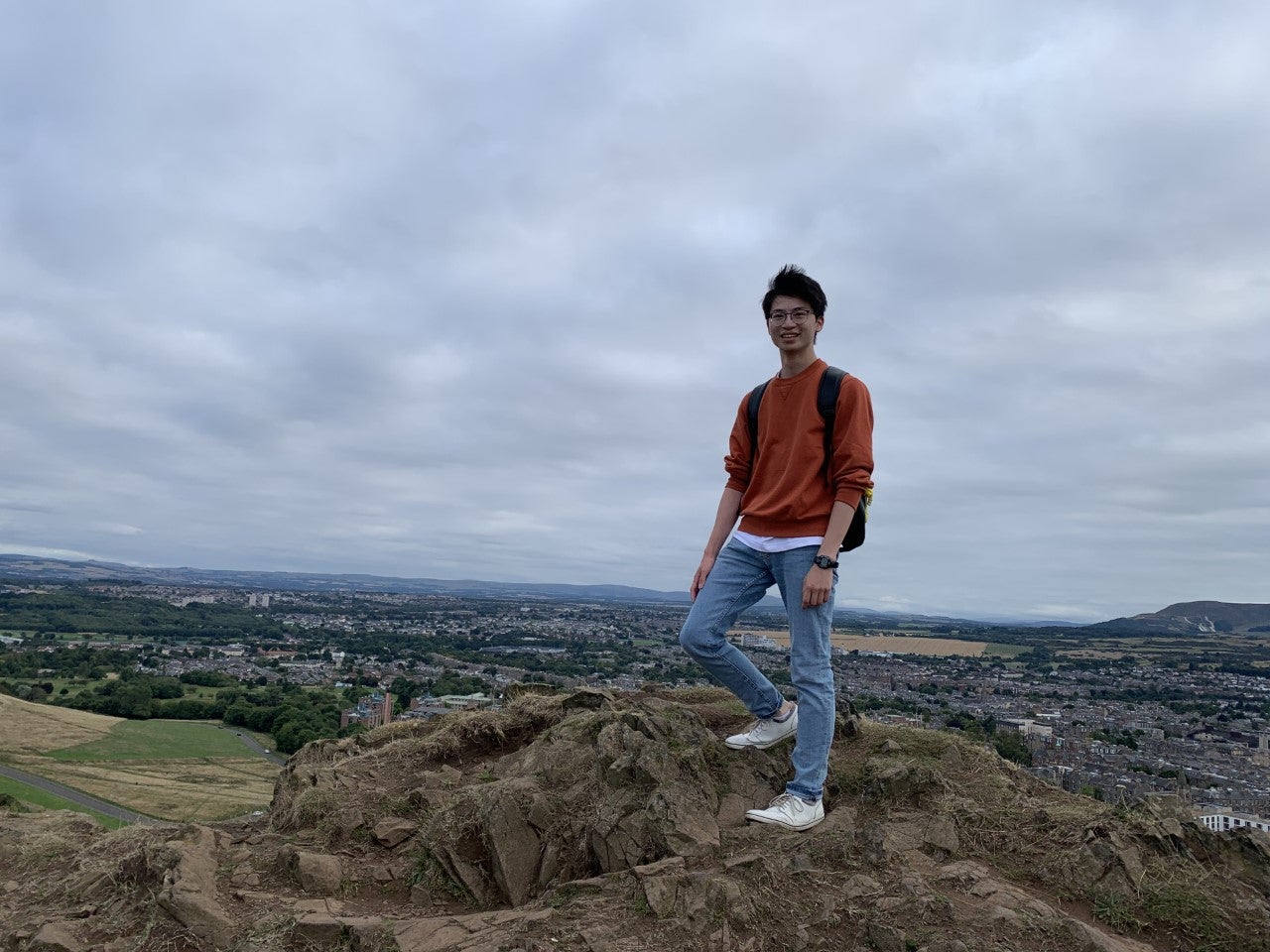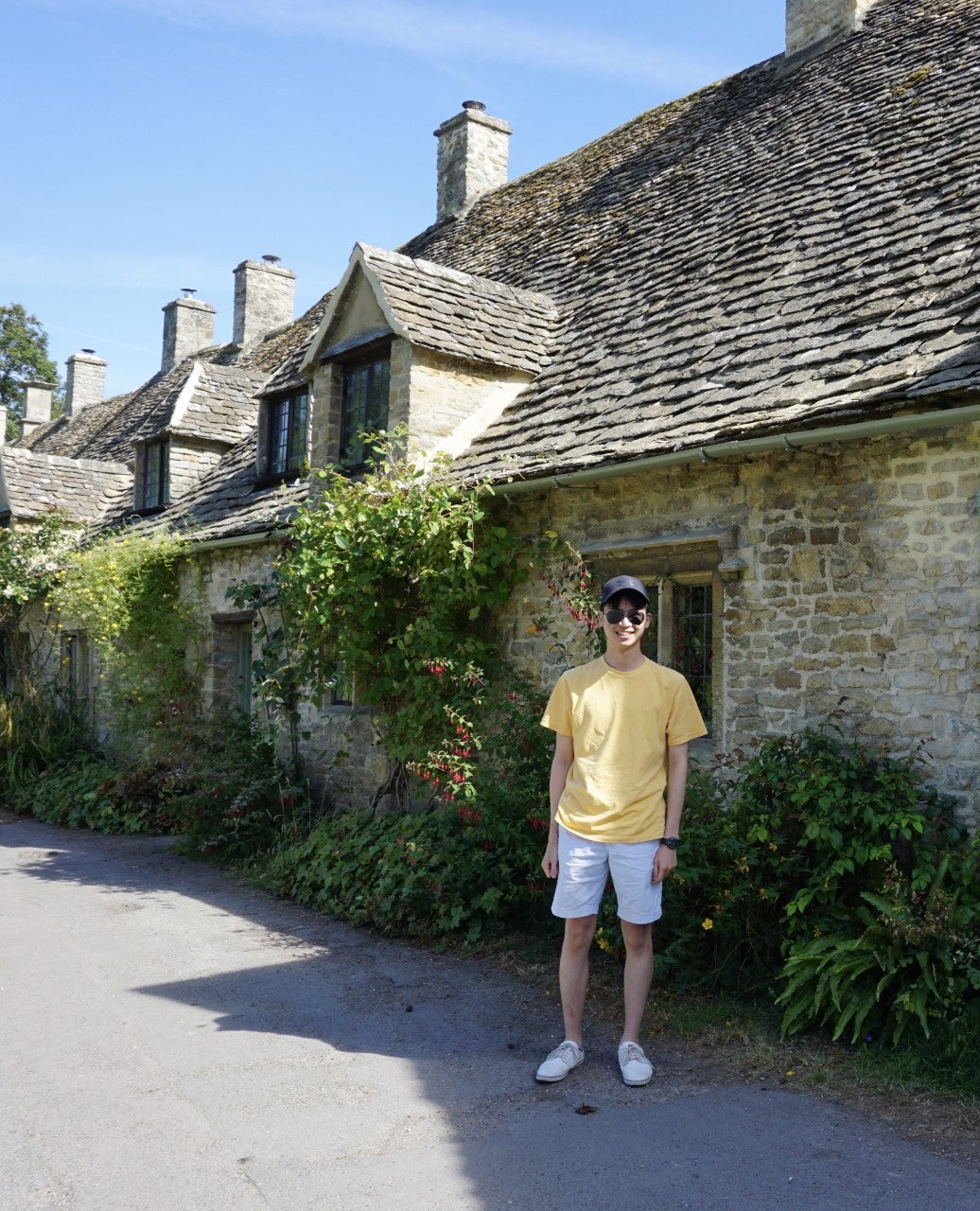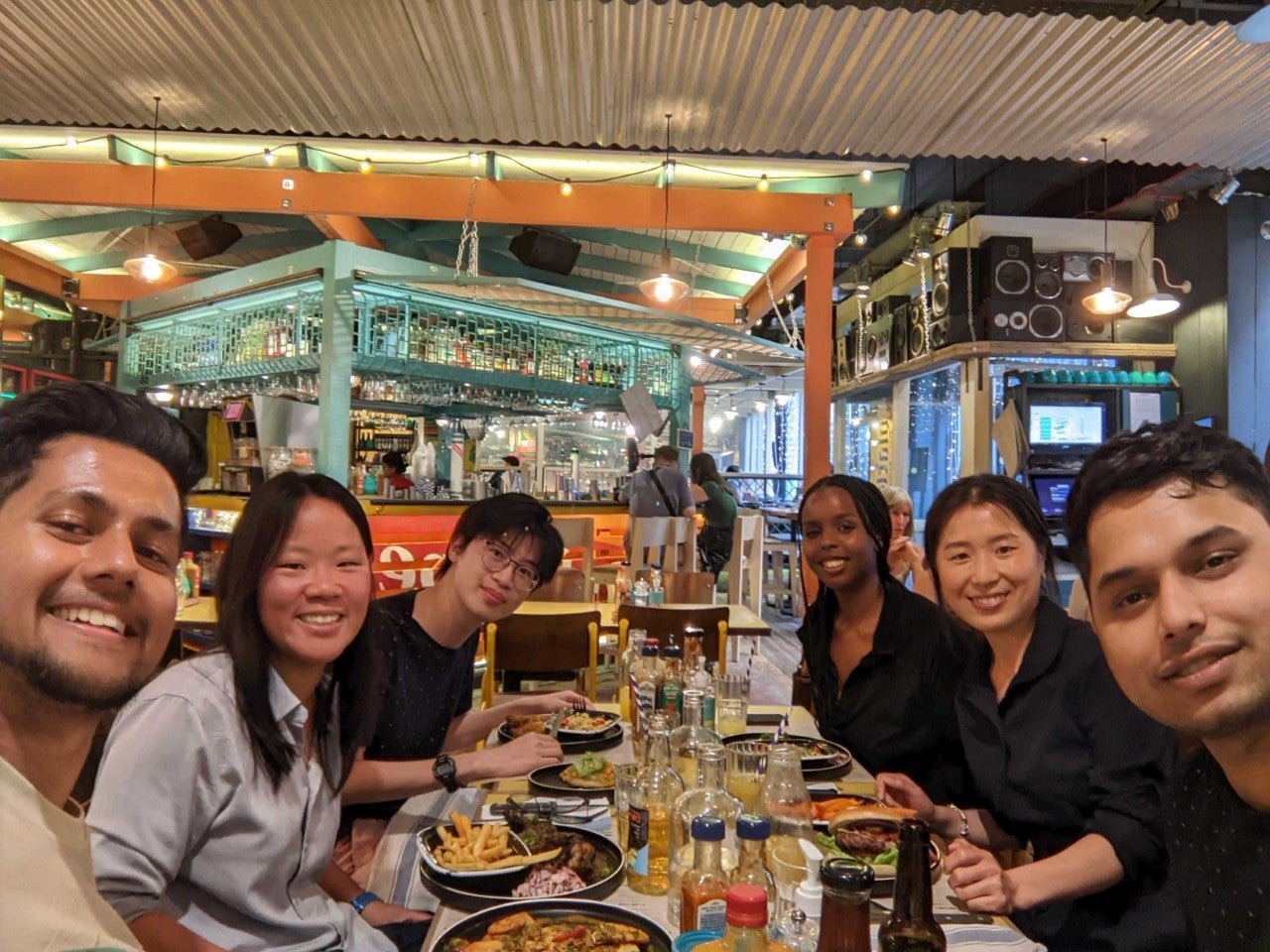Alex Chan, a third-year Biomedical Engineering student, shares an unexpected career twist that led down a path of rewarding biomedical research.
Term 1: Queen's University School of Computing, bioinformatics research intern (Computational Genomics Laboratory)
Term 2: SickKids, bioinformatics software research student (Scherer Lab)
Term 3: University of Oxford Nuffield Department of Medicine, visiting research student (Computational Rare Disease Group)
Term 4: Ontario Institute for Cancer Research, computational genomics data analyst (Pai Lab)

What did you research at your co-ops?
“I've pretty much worked in bioinformatics for all of my co-ops, where I analyze biological data. I've looked at gut microbiome, and most recently, how genes are linked to different types of diseases.”
“On my third work term, I was looking at how noncoding regions of your DNA, so basically, parts of your DNA that don't code proteins, might be linked to rare diseases.”
“For a bit of background, what people have done previously, is they've only looked at certain protein-coding parts of your DNA because those are the parts that actually make a product.”
“So, if there's a mutation in your DNA that's impacted how those proteins are made, then that would have the most direct impact on a disease, something like cancer or autism or different diseases like that.”
“But the research hasn't been showing that there's enough of an explanation, looking at just the protein-coding parts of your DNA. What I was looking at is the other parts of the DNA that have been largely ignored, like a waste product. And so that was super interesting.”
“Before that, I was working at SickKids in Toronto and I was looking at a specific type of genetic mutation to see the link between that and autism.”
“And then my very first co-op was working with the CHILD Cohort Study. Basically, they're the largest population-based cohort in Canada of early infants and their mothers.”
“There I was looking specifically at how length of breastfeeding affects babies’ gut diversity because we know the more bacteria you have in your gut as a child, the lower the likelihood you'll develop asthma. So, looking at the connection of breastfeeding to asthma. And the puzzle piece that was missing was the gut diversity.”
“We found that the more you're breastfed, the longer you're breastfed, the more diverse your gut microbiome will be. Which implies the baby will likely have a lower chance of developing asthma.”
“In addition, I broke that down into different aspects that we were interested in, like structural variation. For example, with people who have this gene that we know is linked to developmental disorders, is the DNA region longer or is it shorter? One of the results we found is that if you have this specific gene mutated, you're more likely to have a developmental disorder. That specific region tends to be longer and the region is less regulated. That's why we think that noncoding regions, regions that don't make any product, are related to disease.”
“I had a pretty normal day-to-day life. Sometimes we'd have seminars to attend but I mostly did literature review for my own knowledge and code work in the afternoon.”
How did you come across some of these job opportunities?
Alex explained that he got his first co-op position at Queen's by reaching out to a few professors he knew there, as he grew up in Kingston. He found his second job at SickKids through WaterlooWorks, which lead to him learning of a professor at Oxford, whom he reached out to for his third co-op.
What sort of skills have you developed from your co-op term?
“When I first started my degree, I had to take introductory coding courses, and I thought this isn't for me, I hate this, I'm never going work in a computer science job. Funnily enough, that's all I've been doing since then.”
“It's not hardcore computer science. But it is a lot of data analysis, which requires a lot of knowledge, surprisingly, from the first-year courses.”
“I've just been so fortunate to be able to directly apply the knowledge I've gained from those computer science courses in first year through all of my co-ops.”

“I've only ever really worked in research and most of my supervisors have always pushed for weekly updates and presentations. Getting up in front of 10-40 people can be pretty daunting, especially when you're first starting out.”
“You don't necessarily have all the background knowledge and detail about how to answer the questions people are asking you.”
“Over time, I learned to say 'I don’t know' if I didn't know something and that I’ll look into it.”
“My co-ops definitely helped me improve my confidence that I was capable enough to do this and be sure in myself.”
What sort of challenges did you have to face? How did you overcome them?
“At Oxford, I found out the hard way that a lot of buildings in England don't have air conditioning and they had one of their hottest summers on record. So that was definitely a challenge.”
“The visa process was surprisingly very quick as it only took 10 days. I got my visa around the time when they were prioritizing the refugees coming in from Ukraine, so I didn't expect to hear back from the visa process for weeks. It was a stressful 10 days, but much faster than anything I expected.”
“I also learned that most other cities have centralized public transportation that's usually funded by the city. In Oxford, they have three major private companies that run the bus lines. You can only get a bus pass to one specific company unless you're willing to fork over an extra 100 pounds. You have to wake up an hour earlier than expected to make sure the right bus was coming.”
“Also, fun facts about buses in Oxford. They're sitting room only. You have to line up to get on the bus, and once the seats are full, no one else can get on.”

What was your workplace culture like?
“I was very lucky that my team was very supportive and we would always hang out after work. I met some of their kids and everything.”
“I felt like I joined a family, I never felt like I was alone.”
“And of course, our supervisor was very involved. We would have bi-weekly meetings or weekly check-ins. They would ask things like, ‘How are you doing? How was England? How are you acclimatizing?’ Stuff like that.”
How do you think this job helped you towards your career goals?
“In Biomedical Engineering, we get a really broad background at Waterloo in a lot of different fields. Bioinformatics isn't necessarily one we get to focus much time on. In our first year, we take courses in data structures and algorithms and just introductory programming, things which have helped me a lot to build that foundation. I'm thankful for Waterloo for giving me that foundation.”
“But through co-op, I've been able to truly focus on things I'm interested in, which tends to be genetic and data analysis, especially clinical applications.”
“The work I'm doing is directly applicable to personalized treatments for people who have rare diseases, and sometimes aren't getting a diagnosis for up to 10 years. Now we actually have a way to treat them and help clinicians make a diagnosis.”
“Doing computational lab work, you don't necessarily think what you're doing will have such a direct impact on other people's lives. And just hearing the stories about how we truly made an impact on individuals is something that's really important to me.”
“My co-op really showed me a different side of Biomedical Engineering that I don't necessarily get to experience at Waterloo. From that, I really developed my aspirations and future career goals.”
“As I mentioned, I thought I would never touch a computer again but now that's really changed thanks to co-op. I think that this is an area of engineering that I would be really happy to pursue.”
Do you have any advice for other co-op students?
“The best advice I've ever heard is, don't say no to yourself. Let someone else tell you.”
“It might sound cliche but if I hadn't heard that advice, I probably would have never reached out to my supervisor in Oxford and got the co-op.”
“A lot of the time we think we're not good enough for something, we don't have the experience for something. We prevent ourselves from even trying because we're just so afraid of rejection.”
“Instead of being the one to tell yourself not to do something, you should just apply, especially for co-op. Just apply and let someone else tell you that you're not the right person. And if they do, that's okay too, at least you tried. But in that chance that you do get the interview, you do get the job, it could be a life-changing experience.”
What’s next for you?
“I'm thinking about breaking down my eight-month work term into two four-month co-ops. I'm not too sure where I will be headed yet, but I think in the summer, I will be back in Oxford to finish up some of the work that I started.”





